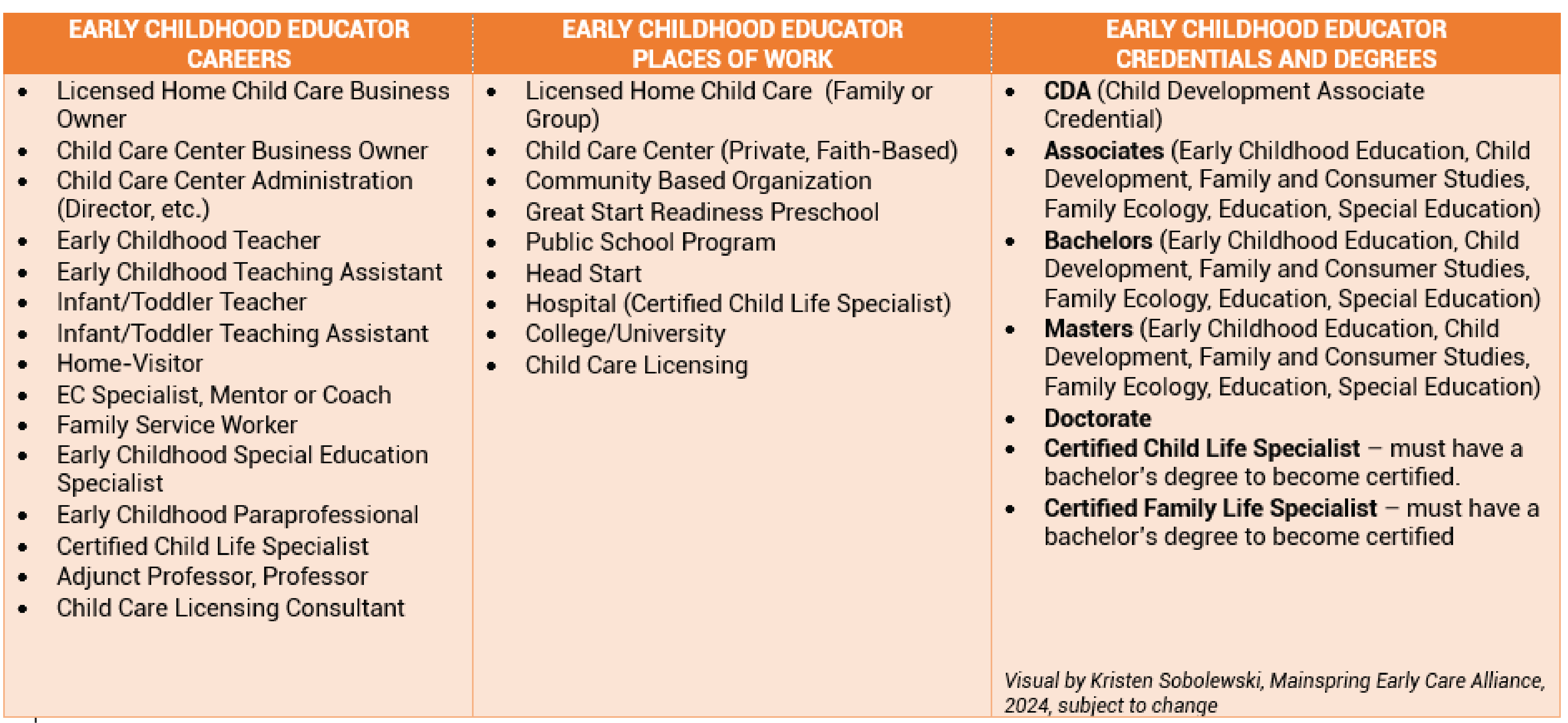The Power of Recognizing and Using Accurate Early Childhood Education and Care Terminology
Healthy development in the early years provides the building blocks for educational achievement, economic productivity, responsible citizenship, lifelong health, strong communities, and successful parenting of the next generation. (Center on the Developing Child, Harvard University). Regardless of work hours or settings, Early Childhood Education and Care professionals play a critical role in helping children learn and meet milestones in their cognitive, physical, social, and emotional development.
There is great importance in using the correct terminology and unifying terms in the sector, emphasizing the importance of this accuracy for both professionals and the public.
Early Childhood Educator
Early Childhood Educators play a pivotal role in nurturing and promoting the learning of young children in various early childhood settings. Early learning settings include but are not limited to child care homes, child care centers, public schools, state-funded preschool, Head Start, faith-based programs and more. The National Association for the Education of Young Children (NAEYC) defines an Early Childhood Educator as someone responsible for caring for and facilitating the learning of children during their early years. Early Childhood Educators may hold one or more job roles such as child care home business owner, child care center director, lead teacher, home visitor, teaching assistant, early childhood special education specialist, and more. Using this accurate terminology helps convey the importance and professionalism associated with these roles.
The chart below is a comprehensive list of the professional careers of Early Childhood Educators, including settings and credentials needed.

Common goal amongst quality Early Childhood Education Settings
Those operating Child Care Centers, Licensed Child Care Homes, Faith-Based Centers, Head Start, State-Funded preschool programs, Community-Based Organizations, or any other type of early childhood education and care service, share a common goal: to provide a safe, nurturing, and educational environment for young children. Using the unifying term "Early Childhood Education or Early Learning Program" helps foster a sense of unity among professionals in different settings, emphasizing their collective commitment to early childhood education and well-being.
Child Care Homes vs Child Care Centers
A common misconception that needs to be addressed is “A child care center provides higher quality care and education than a child care home.” This is not accurate. Both licensed child care homes and child care centers adhere to strict licensing regulations. Both licensed child care homes and child care centers are highly encouraged to participate in the state-wide quality improvement system where programs create goals for improvement and help ensure the best quality care and education for the children and families they serve. Education and training level differs from educator to educator, and position to position in a program. When it comes to parent choice, some parents prefer a more family-like, small setting while other parents prefer a center-like environment. Proximity to the parent's home or work, and the use of a family's home language are factors when parents are making a choice between a child care home or a child care center.
The importance of Developmentally Appropriate Practices in an Early Childhood Education and Care Setting
One of the essential aspects of an Early Childhood Education and Care setting is ensuring that the environment and activities provided are developmentally appropriate for the children in their care. Developmentally Appropriate Practices (DAP) emphasizes the importance of tailoring activities, resources, and teaching methods to suit the specific needs and developmental stages of the children involved. This terminology underscores the dedication of child care professionals to ensuring the best possible learning experiences for young children. Practices must also be culturally, linguistically, and ability-appropriate for each child.
In the world of early childhood education and care, accurate terminology matters. Using the correct terms not only reflects the professionalism and dedication of early childhood professionals but also helps the general public understand the importance of the sector.
